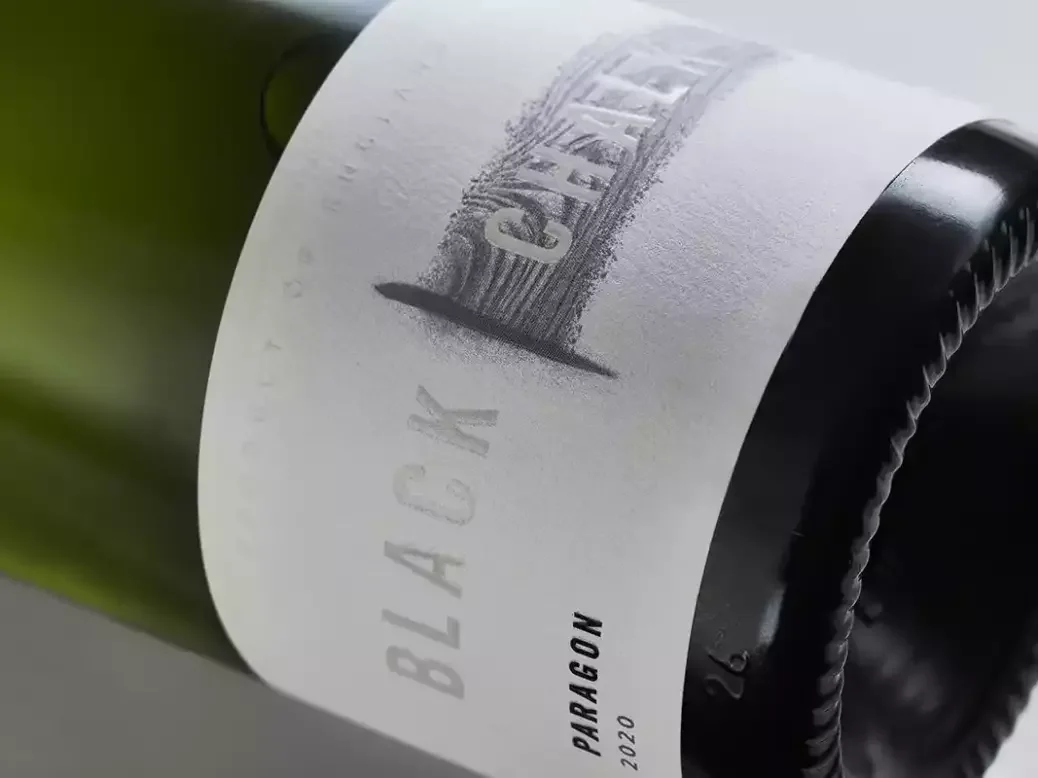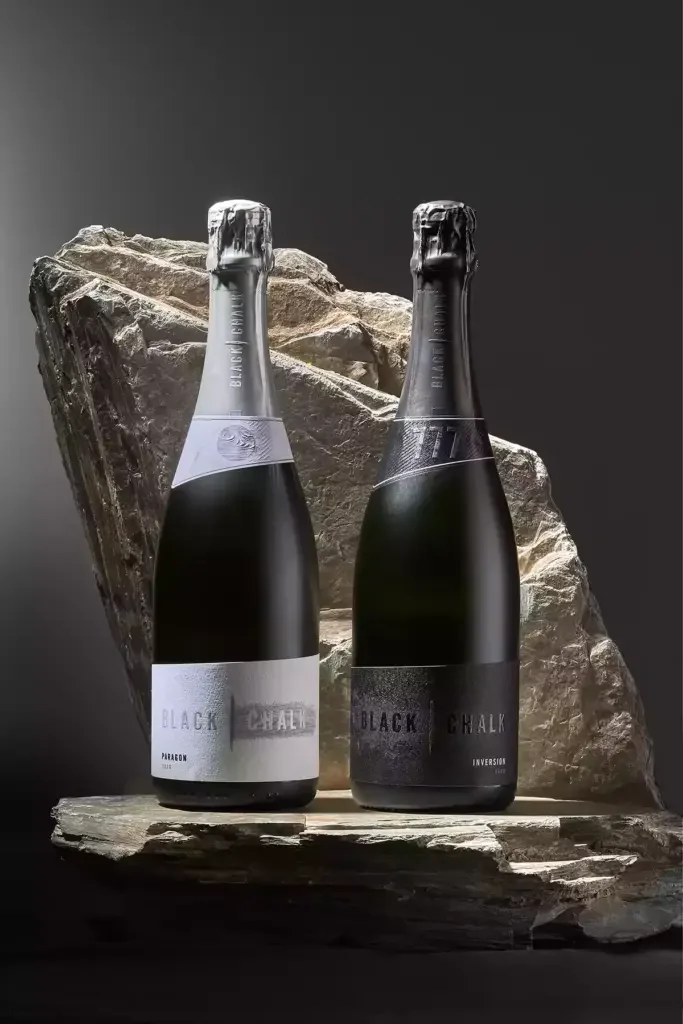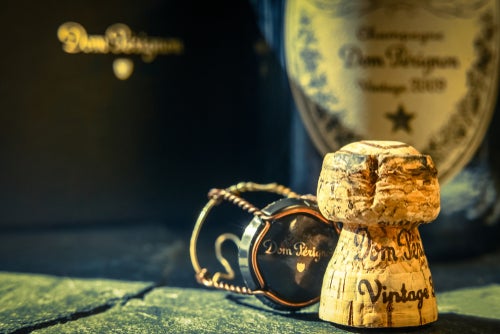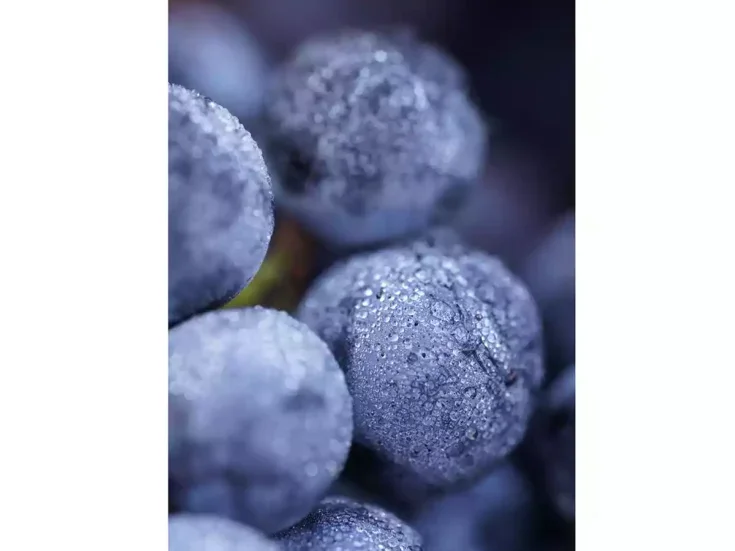
Anne Krebiehl MW is impressed by Black Chalk Paragon and Inversion, the Hampshire producer’s new Blanc de Blancs and Blanc de Noirs cuvées.
It is exceedingly rare that winemakers launch new wines with the attribute “technical,” yet that is exactly what Jacob Leadley and Zoë Driver, the winemakers at Black Chalk have done. The wines are a Blanc de Blancs called Paragon and a Blanc de Noirs called Inversion. Both spent 26 months on lees, were disgorged in July 2023, and are the first “premium tier” releases from this relatively young winery in Hampshire. 2020 was the year their “state-of-the-art winery” was built, enabling them to craft these two Vintage wines released in April 2024.
By “technical” they mean a focus down to separately vinified clones, the use of particular yeasts, some oak, avoidance of malolactic fermentation, and no fining—not apparently any more or less technical than any other traditional-method sparkling wine. So, why their unusual emphasis? “I think the main reason is that the focus we have had in the winery has been to ensure Hampshire displays itself in the final wines as purely as it possibly can,” says Leadley, owner-winemaker of Black Chalk. “We need to figure out how to do that because we are still at the very early stages of English winemaking. So, we look at it in a very in a precise way, down to the level of clonal detail: we split everything out in the winery, press everything individually, and spend a lot of time at the blending table putting things together to show this purity of fruit.”
The fruit for both wines was grown in the Upper Levels vineyard, an east-facing, sheltered, relatively warm site in Hampshire’s Test Valley, where there are just 16–24 inches (40–60cm) of topsoil on pure chalk. “The Test Valley is famous for its chalk streams,” Leadley says. “The purity of the water is the purity of the fruit that we experience in the making of the wines. We are not that influenced by the Channel, because we have the Isle of Wight sitting off the South Coast. We certainly suffer with spring frosts, but it also means that we benefit from warm summers—when it is warm—and we get that extra ripeness that comes through in these two wines.” This was the case in summer 2020, when Leadley and Driver harvested grapes of exquisite ripeness in this site they had taken over on a “long lease.”
Leadley says: “Somebody else had the foresight to plant 30 acres [12ha] split across three vineyards with 36 clone/rootstock variations. When Zoë and I first sat down in 2020, when we built the winery, we wondered what each of these clones would give us independently, so we set the winery up like that, with lots of small tanks, and we haven’t looked back.” The difference between the clones, says Leadley, is “unbelievable in terms of fruit purity, weight in the wine, even when the chemistries look very, very similar. You wouldn’t know it at harvest, it’s only when you taste the wines that you know.” Driver adds: “We have clones planted right next to each other and the chemistry looks the same—the sugars, the acid, the pH… They taste the same on the vine. We press them separately and they could be two different varieties. It’s really been a learning curve for us. This database of which clones really work in each given year for different styles of wine is one of the biggest learning perks—and one of the most technical.”
Brilliant expressions of England’s chalky south
The wines are aptly named. The Chardonnay Paragon, based chiefly on clones 95, 121, 76, and 131, 46% fermented in oak, is indeed a paragon of Blanc de Blancs. Despite the oak, it is almost sylphlike, a brilliant expression of England’s chalky south. The Blanc de Noirs, likewise, has a well-chosen name in Inversion, because it is not an autolytic, bold, rich, and vinous Blanc de Noirs, but on the contrary, a vision of poise, based chiefly on the 777 clone, notably not a sparkling clone, which makes up two thirds of this 83% Pinot Noir and 17% Pinot Meunier blend. Just three percent of base wines saw oak—five-year-old Burgundian barrels at that. Both wines were allowed to remain svelte, with a translucency that allows you to see depth, climate, and place.
Leadley says: “We didn’t want to make just another Blanc de Noirs or another Blanc de Blancs. It was an active decision. We are not showcasing autolytic character because England has got this amazing ability to ripen fruit over a long period of time on chalk, which gives a freshness and a purity that is unlike other sparkling wine regions. And that is something we want to show, something we really want to push, which has been the story since the very beginning of Black Chalk.” Driver adds: “Clone 777 is the star. What we are trying to show at Black Chalk is the fruit. It’s hard to grow fruit in the UK, so it’s such a joy to bring it in at harvest, and we really want that to be the star of the wines, without masking or manipulating it.”
The summer of 2020 was beautiful and warm. Have they bottled more Paragons and Inversions since? “Inversion happened in 2021, which actually was a really good year for us,” Leadley says of this much more challenging growing season. “Chardonnay was a challenge, so we didn’t do Paragon. But in 2022, we did both.” What a lovely thought, to be able to compare different Paragons and Inversions in the future—because while these two initial releases are delicious now, they definitely have the ability to age well.
Tasting

2020 Black Chalk Paragon
(12.5% ABV; 3,535 bottles; disgorged July 2023; dosage 5.9g/l)
Creaminess, dried corn husk, and pale polenta on the nose have only a slight overtone of lemon and immediately proclaim the pure Chardonnay character of this wine. The body is exquisitely light and bright, full of lemon verve, but with a veil-like, silk-chiffon feel, tingling but smooth and slender at the same time. Beautifully salty depth lends a cooling, silvery lemon sheen and adds real dimension, despite the lightness and slenderness. The superfine mousse only enhances the finesse and poise of this most elegant, precise, long, and saline wine. | 94
2020 Black Chalk Inversion
(12.5% ABV; 1,939 bottles; disgorged July 2023; dosage 6.3g/l)
Surprisingly pale for a Blanc de Noirs, the wine opens with fresh white currants, lemon, and pale-yellow Reine Claude plum. These notions almost have a sherbet-like quality, bright and very fresh. It is on the palate that the structure of Pinot Noir comes through, with a richer, textural backdrop, reminiscent of the tender, velvety surface of a fresh oyster mushroom. The yeasty backdrop is most subtle, very elegant, and pervaded by ripe-lemon freshness. Nothing here leans on autolysis or obvious oak, in an exceptionally pure and delicate Pinot Noir that comes with a straight but graceful backbone. Blanc de Noirs, but certainly not as we normally know it. | 94






